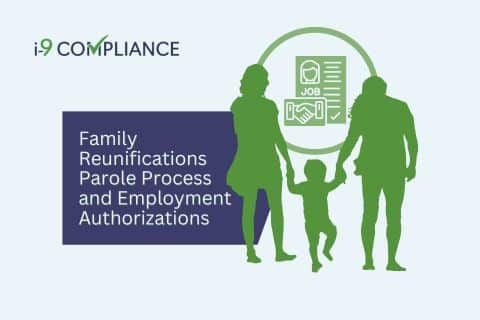DHS Introduces Family Reunifications Parole Process and Employment Authorizations for Several Countries

August 2, 2023
The Department of Homeland Security (DHS) launched a family reunification parole program for residents of Colombia, Guatemala, El Salvador, and Honduras. This program grants temporary parole to approved beneficiaries of a Petition for Alien Relative (Form I-130) from these countries. This parole lasts up to three years while the beneficiaries apply for permanent resident status. In addition, it allows individuals to reside in the U.S. while waiting for an immigrant visa, making them eligible to apply for employment authorization.
The new process offers many benefits to nationals from Colombia, El Salvador, Guatemala, and Honduras. However, these benefits apply to those with relatives living in the U.S. as U.S. citizens or lawful permanent residents. The parole benefit has another limitation: It applies specifically to siblings and children of U.S. citizens or spouses and children of lawful permanent residents with approved I-130 petitions.
The process also allows the Department of State (DOS) to invite qualifying beneficiaries from Colombia, El Salvador, Guatemala, and Honduras into the States. However, this invitation applies to those outside the U.S. with approved Form I-130s. Once invited, petitioners may request advance travel authorization for the beneficiary and eligible family members.
Once granted advance travel authorization, the initial petitioner may apply for parole, which the DOS gives on a discretionary basis. The petitioner must demonstrate an urgent humanitarian need or a significant public benefit. They must also include “a demonstration that the beneficiary warrants a favorable exercise of discretion.” The DHS will grant warranted discretionary paroles for up to three years.
A petitioner with parole can also apply for employment authorization, allowing them to work in the United States. When hired, they may use these documents for the employment eligibility verification (Form I-9) process. Sometimes, beneficiaries may qualify for additional periods of parole. In this case, individuals may live and work in the U.S. while waiting for their immigrant visa.
These changes will allow families of anyone currently employed in the U.S. to move to the States before immigrant visas become available. In addition, they can acquire work authorization after arriving. As such, employers should remember to verify their workers’ employment eligibility. Unfortunately, this step has proven confusing for employers with foreign national workers. The best way to help ensure uniform compliance is to incorporate an electronic I-9 management tool. This tool can provide step-by-step guidance to help ensure compliance with every form.
Increase your hiring and verification efficiency today with I-9 Compliance automation.